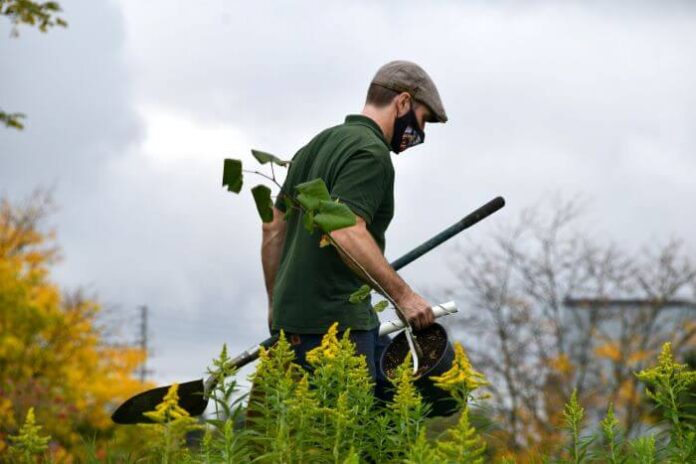As a profession, gardening ticks a lot of boxes. It’ll allow you to spend time outdoors throughout the year, and provide you with plenty of built-in exercises. As a landscape gardener, you’ll encounter plenty of variety since no two gardens are ever quite alike. As such, you’ll find it a great way to stretch your creative muscles, as well as your actual ones.
So, in this post, we will tell you some things you need to get to kick-start your landscape gardening venture. Just keep reading!
Starting A Landscape Gardening Business; What You Need to Know
#1: Get the right skills
Before starting out as a landscape gardener, you need to first ask what skills you will need. This is a profession that requires the development of many, many technical skills, as well as a base of knowledge. When confronted with any given garden, you’ll need to develop a plan and execute it. This means being familiar with common tasks like pruning trees, mowing lawns, and caring for plants and flowers.
The best way of accumulating this skill and knowledge is almost certainly an apprenticeship. You might practice your gardening abilities in your own little patch before moving into a professional environment. From there, you might move into a leadership role, where you’ll be overseeing other skilled professionals. This transition naturally requires an entirely different sort of skillset.
#2: You will need to acquire some soft skills
Where gardeners are regularly in contact with customers, they’ll also need soft skills. Of particular importance is the ability to communicate the progress of an ongoing, complex project, and to offer reassurance, and a little bit of good-natured banter.
#3: You need to be built for the task
Landscape gardeners are vulnerable to injuries, which might restrict one’s ability to work. As such, an effective landscape gardener will take preventative strength training, and general health and safety, very seriously. This is especially important if they are working at height or with power tools.
#4: Develop A Business Plan
Starting up as a freelance landscape gardener will also require some business expertise, which starts with the formulation of a coherent business plan. This doesn’t have to be the most impressive document, but it does need to outline your aims and how you intend to realize them.
#5: Get your suppliers right
As a landscape gardener, you’ll need to be confident in the materials you’re being supplied with. When materials are poor quality, expensive, late in arriving, or all of the above, your profitability as a landscape gardener will begin to suffer.
You might explain the problem to your clients, but ultimately it will be your own reputation that suffers. If you’re looking for large numbers of paving stones, for example, it’s vital that they be delivered at the right time – since storing these materials for any length of time can be inconvenient.
For this reason, it’s crucial to establish good relations with a reputable supplier. There are major advantages in doing so. You’ll be forewarned of any supply difficulties, and you’ll have greater leverage to negotiate discounts – especially if your business is a very large one that will be supplying consistent patronage over a number of years.
#6: Set a competitive pricing structure
Setting competitive rates is important, and one way to come up with competitive rates is to research the average prices charged by other local landscapers. Keep in mind that the rates you charge will depend on the complexity of the job, the materials required, and the length of time it takes to complete the job.
#7: find clients for your business
Finding clients is one of the most important steps in starting and running a successful landscaping business. Some channels to try are social media platforms and creating a website.
You can also reach out to local businesses and organizations to offer your services, such as local parks and golf courses. You can also network with other local landscapers and gardeners to form partnerships and referral relationships.
#8: Market your gardening business
This is more like the point mentioned above. Marketing is the lifeblood of any business, including landscape gardening. It helps you reach out to new clients and stay competitive in the industry.
One of the most effective ways to market your services is through word-of-mouth referrals. Encourage satisfied customers to share their experiences with their friends and family. You can also create promotional materials such as flyers and business cards or offer discounts and incentives for referrals.
Final Note
For many gardeners, turning their passion into a profession is the ultimate dream. Starting a business as a landscape gardener is a great way to reach this goal, and it can be a very rewarding and lucrative endeavor.
Whether you’re a beginner or an experienced gardener looking to start your own business, we have exploited all the information you need to get started here in this post. You can go over it again to know the next step to take in your landscape gardening venture!







